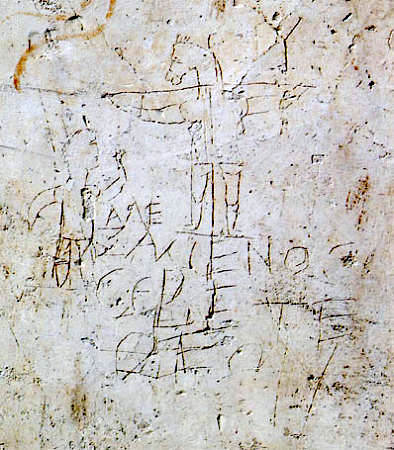Jonathan, you’re making invalid distinctions between what Hurtado said. Hurtado doesn’t have to flat out say “Jesus claimed to be God” for the message to get clearly across from the New Testament and other sayings of Jesus. Before I explain your strange interpretations of what Hurtado says above, I’ll quote Hurtado himself clearly saying the message gets across without Jesus saying the words “I am God!”:
But Tilling (and some others, such as Crispin Fletcher-Louis) seem to me to be anxious about ascribing much in the way of new convictions about Jesus’ status to these “post-Easter” revelatory experiences. Perhaps their concern is that this would involve early believers making claims about Jesus that he hadn’t made or even held about himself. In earlier posting here, however, I have argued that this concern betrays (typically unconsciously) a dubious notion that emerged with particular force in 18th-century Deist thought that the validity of claims about Jesus rests upon whether Jesus himself made them about himself.
So Jesus does not have to say those words “I am God”. It can become very clear, as it is all throughout the New Testament, without those precise words being spoken, even not by Jesus Himself. Hurtado said from the quotation I provided earlier and you requote: “Old Testament passages that, ugh, inarguably refer to God – yod he vau he – are applied to Jesus”. But Hurtado is distinguishing persons when he distinguishes between Jesus and God, that’s why he calls it binitarianism or dyadic. It’s basically Trinitarianism except without the Holy Spirit. Of course Jesus is a different person from the Father. Applying something that only belongs to YHWH to Jesus is undoubtable. Jesus, per Hurtado, is given the divine glory given to God, he’s given the divine reverence given to God, even the divine name YHWH is given to Jesus. Where do you draw the line? Do you pray to Christ, worship Him, and withhold from giving Him a claim to being God? You also make a distinction between saying Jesus is “divine” and saying Jesus is “God”. Where is the logic to this distinction given everything else Hurtado has said?
Obviously, the Witherington quote had everything to do with terminology. I mean, Hurtado flat out said it, and he makes a distinction between Jesus and God (the Father, of course, YHWH of the Old Testament) for the same reason that I would make a distinction between Jesus and God. Because they’re not the same person. But it’s still not mononitarianism or whatever word you would call that, at the very least it is binitarianism. No bitheism as you had incorrectly assumed one time before.
And again, “enthroned as Lord” (and I’ve already shown earlier from the lecture quote that the meaning of Lord can either mean master or God according to the context, according to Hurtado, and the context of this passage makes it clearly a God title). Who else is enthroned on the judgement throne in all the Bible except God? A human being couldn’t comprehensibly be given such power.
What Hurtado says is clearly binitarianism, indeed. Two persons, one God.
Do you realise that Hurtado believes that Jesus’ followers started to worship him because they believed God had told them to, rather than because they believed Jesus was God?
Technically, yes, but that hardly makes a difference. It’s even more constricting on your view, isn’t it? If not Jesus said “I am God”, but God Himself who said it, immediately proliferated throughout the early church, and is now in the NT.
I also just did a bit more digging and found this that Hurtado sent in response to a question someone asked him on the blog:
Gabriel: I think that the better answer to your question is to note that the “dyadic” worship pattern reflected in the NT comprises Jesus being included in the worship that accrues ultimately to God. That is, Jesus isn’t treated as a second deity, a partner of sorts with God, but is consistently positioned with reference to God, as sent, commissioned, handed over (to death), raised, exalted, installed as king, etc. So, it’s not a matter of some actions reserved for God (although the traditional Eucharistic ritual is thanks to God for Christ, not thanks to Christ).
My problem with some of what you’re saying is that it’s very vague. This is why in my previous response you have not responded to yet I asked you these six questions to answer so I can get a grip on your worldview of Jesus:
- Does Jesus pre-exist His birth? 2) Is Jesus destined to eternally rule the kingdom of God? 3) Is Jesus the Creator alongside the Father? 4) Are Jesus and God of the same ‘subtance’? This term might carry baggage but I trust you know what I’m talking about. 5) Is Jesus to be worshipped? 6) How did the Word exactly become Jesus during the incarnation? What sense at all does it to make to posit a discontinuity between the Word and Jesus when the incarnation took place? Did the Word suddenly cease to exist and Jesus appeared in place of the Word?
